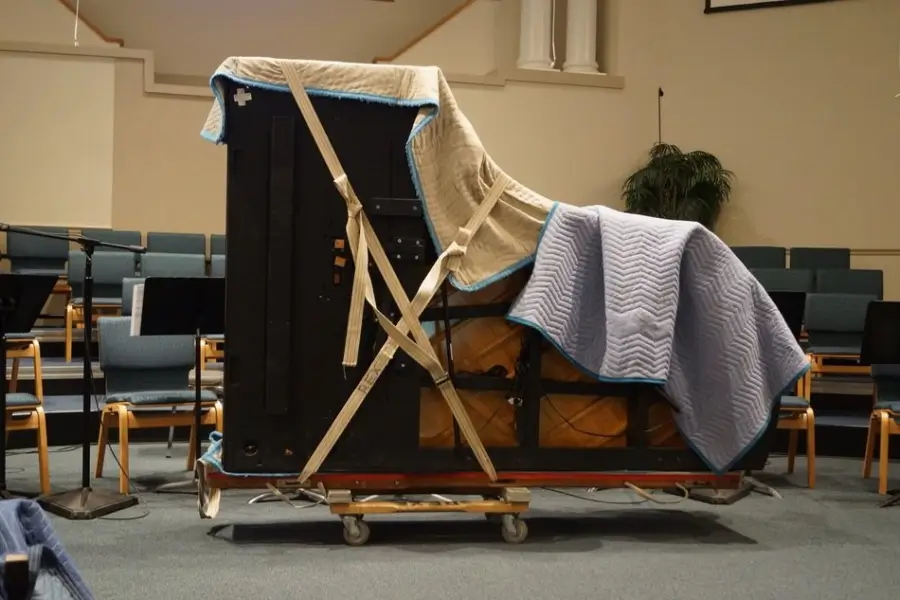Moving a piano isn’t like moving a couch or a box of books. It requires actual planning, quite a lot of muscle, and careful handling. Grand or upright, weight is one of the first things to consider.
How Much Does a Piano Weigh?
Pianos are one of the heaviest and most difficult items to move – not just because of their size, but because they’re both incredibly heavy and surprisingly fragile. Inside each piano are delicate components that can be easily damaged if not handled properly. Moving a piano takes serious care, experience, and the right equipment. So, how much does a piano weigh? Let’s break it down.
Grand Pianos
Each grand piano has its own size, weight, and purpose. Here’s a simple breakdown of how much does a piano weigh:
- Petite Grand Piano. The smallest grand piano, usually under 5 feet in length. Weighs between 400-500 lbs. Great for smaller rooms, but still can be quite “loud.”
- Baby Grand Piano. Baby grand piano size is around 5′ to 5’5” long. How much does a baby grand piano weigh? It weighs between 500-650 lbs. Popular for homes thanks to its size and rich tone.
- Medium Grand Piano. About 5’5″ to 6’3″ long and weighs around 600 lbs. A nice middle ground between baby and full-size grands.
- Parlor Grand Piano (Recital Grand). A bit larger at roughly 6′ to 6’10”, this grand piano weight is about 750 lbs. Found in mid-size venues or music rooms.
- Ballroom Grand Piano. Larger grands used in big spaces like halls, typically 900-1,000 lbs. Offers deep, resonant sound.
- Concert Grand Piano. The largest of all, this upright piano size ranges from 7’4″ to 9’6″, and weighs around 900-1,200 lbs. Built for concert stages with the fullest, richest tone.
Upright Pianos
Upright pianos also come in different sizes and styles, each with its own weight and use case. Here’s a quick overview of how much does an upright piano weigh:
- Spinet Piano. The smallest upright piano, around 36″- 40″ tall and upright piano weight between 200-400 lbs. Easy to move and great for tight spaces.
- Console Piano. Slightly taller at 40″- 43″, this piano weight is about 350 -450 lbs. The most popular vertical piano for home use.
- Studio Piano. Taller and heavier at 44″- 48″, weighing 400-500 lbs. Can be found in schools and studios because of their rich sound and durability.
- Standard Upright Piano. Full-sized models can weigh anywhere from 200 to 1,000 lbs depending on the make, model, and age.
Electric Pianos
Just like regular ones, electric pianos come in a variety of styles, each designed for different needs – from beginner practice to professional performance. Here’s a quick breakdown:
- Beginners Electric Keyboard. Lightweight and simple, these usually have 61 or 76 keys and average piano weight between 20-30 lbs. Great for kids or casual learners.
- Professional Digital Keyboard. Often full-size (88 keys) and designed for stage use. They weigh between 20-100 lbs depending on build and features.
- Standalone Digital Piano. These include a cabinet and built-in speakers, weighing around 50-110 lbs. Designed to feel and sound like acoustic pianos.
- Digital Grand Piano. The heaviest in the electric category, weighing 150-300 lbs. Mimics the look and feel of a grand piano while staying (somewhat) portable.


